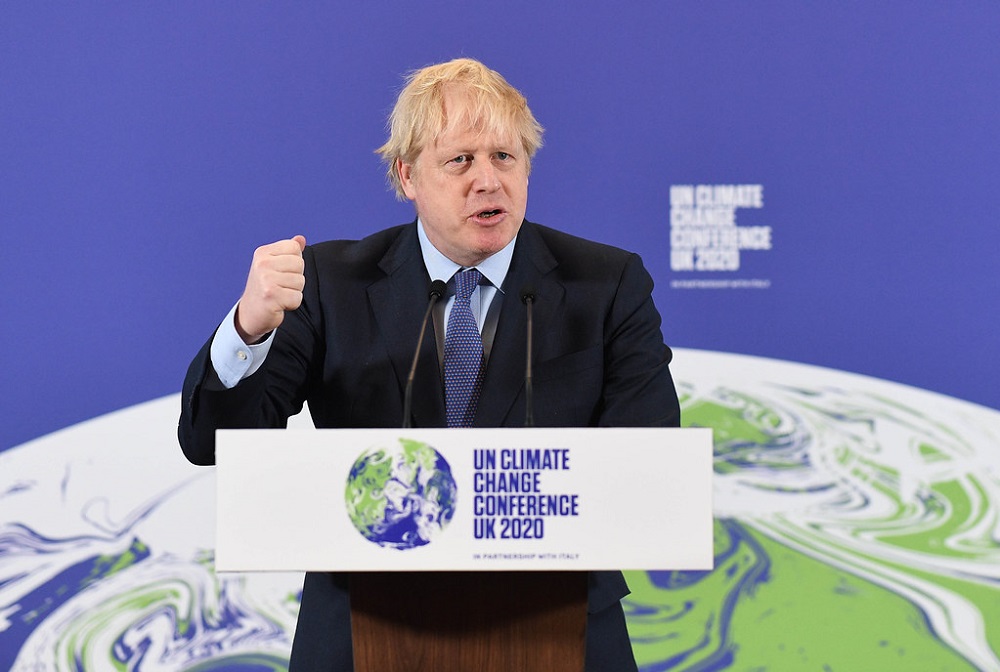There’s no denying global warming – but we’re still in denial about the scale of the challenge of tackling it

John Ball, former lecturer in economics at Swansea University
In case you missed it, COP26 is being held in Glasgow, with lots of commitments to save the planet before delegates fly away in their private jets.
The is no denying the problem of global warming. But we still seem to be in denial about the scale of the task of tackling it.
The planet is getting warmer and we need more than grand plans and buckets of greenwash. But the reality is that the massive practicalities and challenges are simply not being faced.
Take materials. Products and services that reduce carbon emissions have an eye-watering cost. The price of minerals used in car batteries has risen 139% in the past year, lithium has risen by 200%, copper by 70% and there are concerns over the supply of nickel and balsa wood for wind turbine blades. To meet demand, the annual production of critical metals used in carbon reducing products is forecast to rise by 500% per annum.
We need to heat our homes. The twenty-three million gas boilers in the UK (of which 1.3 million are in Wales) must go and, in their place, air source and ground sources pumps. They are unproven, expensive, require building alterations and are not ready for mass roll out. They cost between £14,000 and £19,000 to install, take time to warm up, operate at lower temperatures and invariably require larger radiators or solar panels to compensate
The pumps run through horizontal trenches but properties with small gardens require a bore hole of over one hundred metres. Quite how this will work in the thousands of terraced houses in Wales with a small or no garden is anyone’s guess. In addition, the requited specialist installation and maintenance skills are simply not available.
Congestion
Much is being made of alternative ways to generate electricity. But wind farms, solar panel farms and other forms of green electricity generation are smaller and more numerous than conventional power stations and so require substantial distribution infrastructure. Therefore, more steel, concrete and copper are required, serious disruption to communities during construction and yet more ugly power lines afterward.
Off-shore turbines are seen as part of the answer. Aside from the materials involved in their manufacture and negative effect on the seascape, they are limited in where they can be placed. They are restricted to depths of less than 60 metres. Unfortunately, four-fifths of the most powerful winds blow over deeper waters.
The latest research indicates that for sufficient electricity to drive our cars and light our streets and homes will require ten times the present generating capacity. Quite how this demand is to be met with intermittent and often non-existent wind and sunshine remains to be explained.
How much food producing farmland is to be lost for wind and solar panel farms?
Of course, one way to save the planet is to scrap our petrol driven cars and purchase an electric car – if we can afford one. Currently the best total distance possible is about three hundred miles, excellent for the school run but a drive from Swansea to Bangor is not on.
Charging takes time and if away from home and after a search hopefully a charger can be found. To meet projected demand, the number of chargers required will have to rise by thirty-one times the present number.
Appropriate mechanic skills are in limited supply and did you know that in the event of an accident, the rescue service must wait for the fire service to endure that the body or parts are not “live”.
Current plans to save the planet will also have an adverse effect the wider environment. Putting aside the wind farms, solar panel farms and endless pylons, has anyone thought about congestion? Electric care will save the planet so why bother to walk out in the pouring rain and stand on a draughty station platform or leaky bus shelter when we are saving the planet with our electric car? Electric cars will simply encourage far more car ownership, more commuting, more out of town development and more congestion.
There are currently 1.6 million cars in Wales alone. The construction of electric cars in the numbers required will use up enormous natural resources, already in short supply, not forgetting the carbon generation used in their manufacture. Electric cars are heavier than petrol cars weighing over a ton, hastening road surface wear generating more carbon emissions from resurfacing.
Real challenge
Meanwhile, the Welsh Government has published grand plans outlining our bid to save the world whilst ignoring real and immediate practical steps within its power. Take the plans for three thousand new houses in north Swansea. Planning consent was refused on a number of grounds, not least local services, structure and traffic congestion. The developer appealed and a Welsh government inspector overturned the refusal.
Limited services mean accessing schools and shops will require a car, at least one per household and thus three thousand or more cars. One of the selling points – surprise surprise – is nearness to the M4; already a car park for much of the day. Congestion, even with electric cars, will lead to more environmental degradation with eventual widening of the M4.
Business parks continue to be developed in out-of-town sites; a nice new Lidl store outside Llanelli boasts 250 free car parking spaces. Do not expect to catch a bus.
There is no denying the problem of global warming. I am doing my bit, walking to the local shop, travelling by bus and using the car as little as possible.
But whilst I am being exhorted to do my bit, who is facing up to the real challenge?
A version of this article first appeared in The Welsh Agenda.
No comments:
Post a Comment